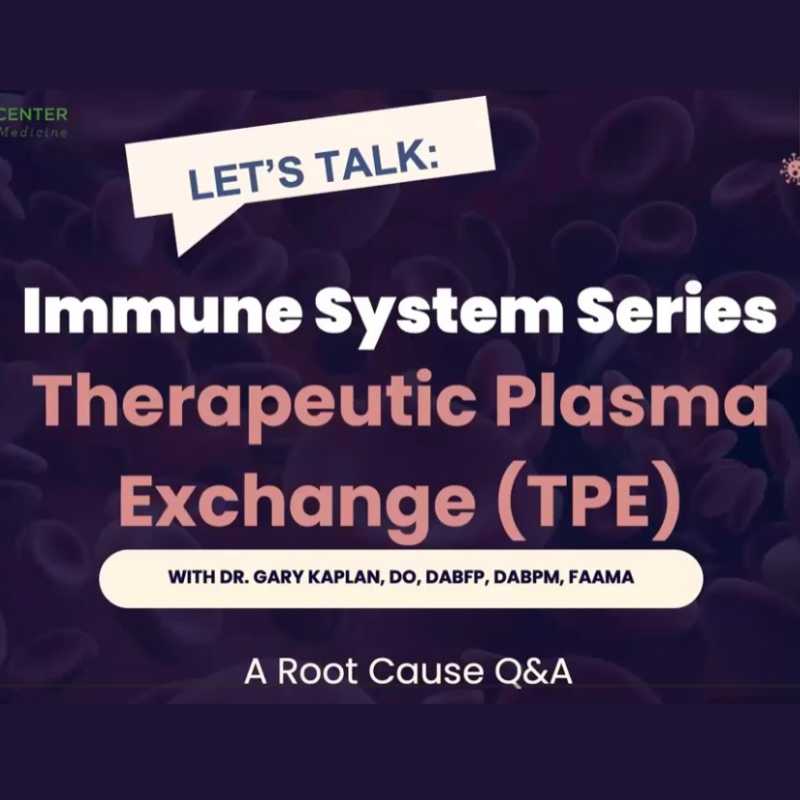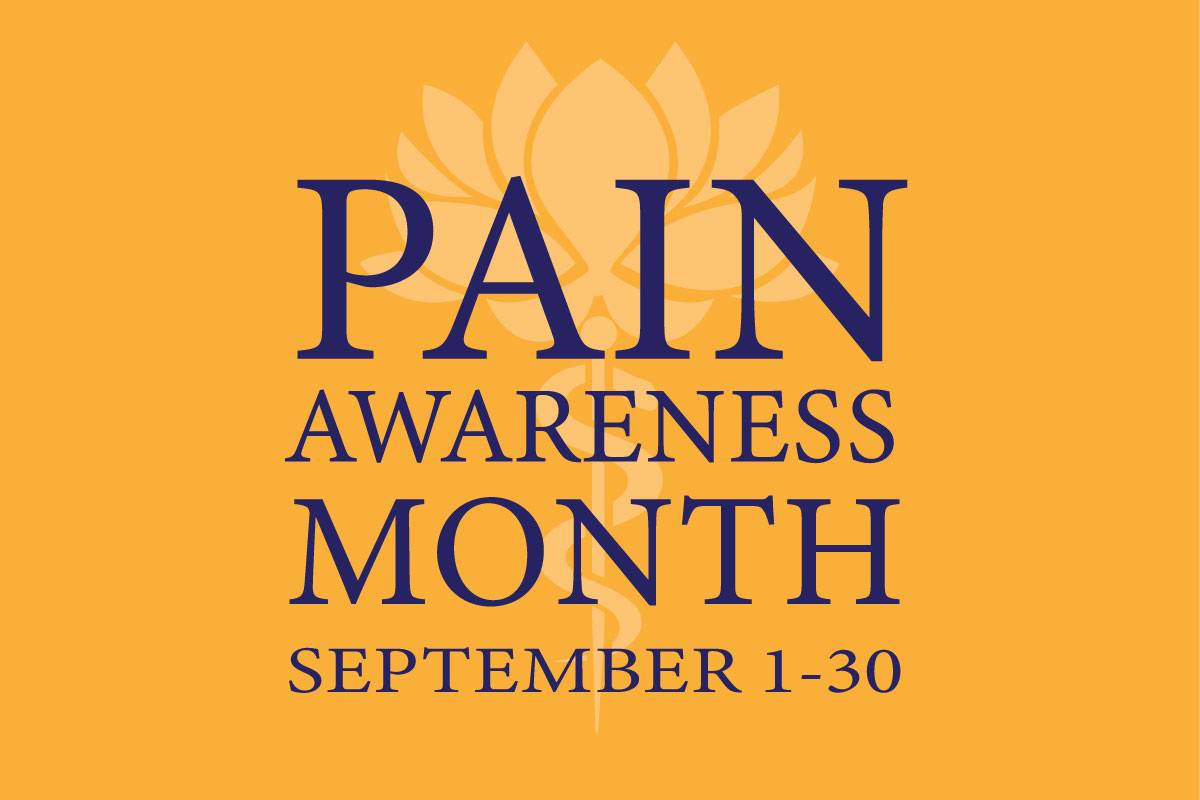
5 Ways We Can Keep Your Immune System Strong
December 10, 2025/by Kaplan Center
Want to Take Your Workout to the Next Level Next Year? These Tips Can Help
December 8, 2025/by Kaplan Center
Dr. Kaplan’s Dos and Don’ts of the Holiday Season
December 3, 2025/by Kaplan Center
Let’s Talk Webinar – A Root Cause Q&A
December 2, 2025/by Kaplan Center
Navigating Holiday Meals with Gut Issues: Simple Tips for a Comfortable Season
December 1, 2025/by Chardonée Donald, MS, CBHS, CHN, CNS, LDN
Craniosacral Therapy for TMJ | Say Goodbye to the Daily Grind
November 19, 2025/by Patricia Alomar, M.S., P.T.
From Compassionate Care to Personal Healing: A Letter to My Patients
November 18, 2025/by Kaplan Center
8 Steps to a Healthier Gut—and a Longer, Healthier Life
November 18, 2025/by Kaplan Center
Mid-Life Irritability & Fatigue Improved by Hormonal Balancing
November 13, 2025/by Lisa Lilienfield, MD
From Challenges to Change: Dr. Kaplan on Healthcare’s Biggest Challenges
October 29, 2025/by Kaplan Center
Overlooked Dangers of Mold Exposure and How to Stay Safe – Dr. Kaplan Talks to WUSA9
October 27, 2025/by Kaplan Center
Let’s ‘Fall’ Into Wellness: A Nutritionist-Approved Immune-Boosting Recipe for Cold and Flu Season
October 13, 2025/by Chardonée Donald, MS, CBHS, CHN, CNS, LDN
PANS/PANDAS – When Sudden Symptoms Signal Something More
October 9, 2025/by Kaplan Center
Beating Burnout, A Nutritionist’s Perspective
October 1, 2025/by Chardonée Donald, MS, CBHS, CHN, CNS, LDN
3 Things That Can Happen After Stopping GLP-1s
September 11, 2025/by Chardonée Donald, MS, CBHS, CHN, CNS, LDN
What Families Need to Know About COVID and Flu Season
September 3, 2025/by Kaplan Center
September is Pain Awareness Month
September 1, 2025/by Kaplan Center
Dr. Kaplan Spoke to Northern Virginia Magazine About COVID, Flu, and Immunity — Here’s What You Should Know
August 14, 2025/by Kaplan Center
“Why Do I Feel Like Crap?”: The Overlap Between Long COVID and Perimenopause
July 30, 2025/by Kaplan Center
Why People Are Turning to EMDR (and Why You Might Want to Too)
July 23, 2025/by Kaplan CenterAre you looking to improve your overall wellness?
Personalized care you can trust.
Our integrative, non-surgical treatment approach is highly successful in maintaining wellness and also treating chronic pain and illness. For more than 30 years, we have delivered superior, cutting-edge health care in the Washington, DC area.
QuickLinks
Contact Information
Tel: 703-532-4892
Fax: 703-237-3105
6829 Elm Street, Suite 300
McLean, Virginia 22101
Map It
Hours of Operation
Mon – Thu : 8 am – 5 pm, ET
Fri : 8 am – 12 pm, ET
What Your Pharmacist Can’t Tell You, Unless You Ask
/in News, Treatments/by Kaplan CenterNaturally people are under the assumption that paying for their medications through their insurance plan allows them the best price available, however, this is not always the case. Consumers are losing out on potential savings because of “gag clauses” that prevent pharmacies from disclosing lower prices for prescription medications if paid “out-of-pocket” instead of using their prescription benefits. In fact, a 2018 study in JAMA found that about 1 in 5 prescriptions are being overpaid!
Unfortunately, the financial burden of prescription medications often causes patients to change the dose to make the medication last longer or choose not to take the medications at all. This is especially concerning for patients taking medication for chronic illnesses. At a time when premiums, deductibles, and copays are far from affordable for the average American, finding ways to make your prescriptions more affordable is essential.
How did we get here?
Pharmaceutical Benefit Managers (PBMs) are companies that act as intermediaries between pharmacies, drug manufacturers and insurance companies. The role of PBMs in the prescription drug marketplace is quite far-reaching, yet surprisingly most consumers know little or nothing about them. PBMs establish formularies (the list of drugs covered by the health plan), decide which pharmacies are included in the network, process claims, and even operate their own mail-order pharmacies. PBMs negotiate deep discounts with drug manufacturers, and in return, those manufacturers benefit from having their drugs widely available to consumers. PBMs reimburse pharmacies a certain percentage for each medication, and charge plan sponsors (insurance companies) much higher rates for those same medications, pocketing the difference. Very simply, PBMs make enormous profits as a result of cleverly crafted contracts and operate with virtually no oversight.
These “gag clauses” that ultimately hurt the consumer are found in many of the contractual agreements between PBMs and pharmacies. If pharmacists don’t play by the rules and volunteer lower-cost alternatives, they risk being penalized and/or dropped from the network.
What is being done about it?
Recently there has been a movement to create more transparency for consumers when buying their medications. Many states have already passed legislation, or have bills pending, that ban the practice of gag clauses. The “Patient’s Right to Know Drug Prices Act” is one of two new bills recently introduced in the Senate. This bill advanced last month for a full Senate floor vote and there is hope that the other, “Know the Lower Price Act” will too.
The bottom line is that you or your trusted advocate must be proactive in every aspect of your healthcare. The only way to really know if you are receiving the lowest possible price for your medications is to do some research and ask a lot of questions. Here are some tips that may help you lower the cost of your prescription drugs*.
Blink Health – Account holders purchase directly through Blink Health but pick up at their local, participating pharmacy.
* These tips require paying for your prescription by cash rather than insurance. While it may get you a better price, keep in mind that these purchases will not be applied towards a deductible. If you have a high deductible and many medical expenses, it may make more financial sense to pay with your insurance.
The Kaplan Center does not endorse any program or site mentioned in this article. Consumers are encouraged to exercise due diligence to make the best, most informed decision on their own behalf.
Hormone Levels and Risk of Alzheimer’s
/in Hormone Health, News, Women's Health/by Lisa Lilienfield, MDLast month at the Alzheimer’s Association International Conference in Chicago, studies were presented in relation to lower hormone levels contributing to the possible risk of dementia.
One study, “Women’s Reproductive History and Dementia Risk”, which looked at 15,000 women in California, showed that women were less likely to develop dementia later in life if they started menstruating earlier and went through menopause later. Menopause at age 45 or younger increased risk by 28%. Also, the risk of Alzheimer’s for women who had 3 or more children was 12% lower than those women who had one child.
Another study out of the U.K., Women’s Pregnancy History May Influence Alzheimer’s Risk through Alterations in Immune Function, of 133 elderly women, supported these findings. They looked at the number of months of pregnancy in their lives and found the higher the number, the lower the rate of Alzheimer’s.
One presenter remarked that the intense fluctuations of hormones related to menopause may be associated with an increased risk of Alzheimer’s.
While it’s not clear if estrogen replacement protects against dementia after menopause, there is supportive evidence that if given to women in their early 50’s, estrogen and progesterone prevent the hormonal fluctuations, hot flashes, and sleep disturbance that could be associated with dementia. The benefits of giving hormones after 65 are murky, in that there may be an increased risk of dementia, heart disease, and breast cancer. In this age group, it is recommended to look at each case individually, depending on other medical conditions, and to use the lowest possible dose with a safer delivery system, like transdermal estrogen and natural micronized progesterone. Some conditions that could benefit from hormone replacement later in life include multiple sclerosis, chronic pain syndromes, osteoporosis, or the continuation of severe hot flashes.
New study shows that probiotics may improve bone health.
/in Bone Health, Conditions/by Kaplan CenterA new study, published recently in the Journal of Internal Medicine, showed that probiotic supplementation may have a positive affect on bone health in humans. The double‐blind, placebo‐controlled study involved 90 women aged between 75 to 80 years old and had low bone mineral density (BMD). They were randomized to receive daily oral supplementation (1010 colony‐forming units of L. reuteri 6475) or placebo over a 12 month period. The results of the study showed that daily supplementation reduced bone loss in older women with low bone density. While more studies are necessary to back up these results, this study introduces new possibilities for those who are looking for non-pharmacological approaches to treating osteoporosis in the aging population.
To read the abstract, click here.